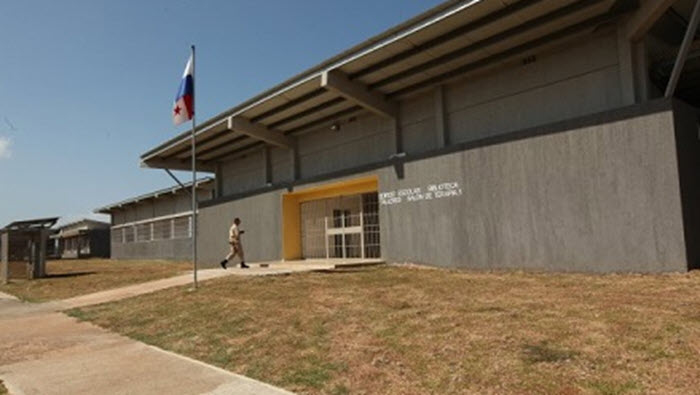A group of prisoners at the infamous La Joyita prison in Panama has devised a manual recycling program to revolutionise not only the prison but also their own lives.
Based in Pacora, the worst of Central American prison facility is overcrowded and has been repeatedly accused of systematic abuses against its population.
Four years back La Joyita was more of a dump than a prison. The inmates walked over and around mountains of garbage and rotten food and slept among rats and unearthly odours.
The recycling initiative now allows the inmates to shave off a day of their sentences for every two days of work for the program.
Organised in several work groups and in eight-hour daily shifts, the prisoners now collect trash, separate it by materials and take it to a recycling plant.
Metal and aluminium is crushed and stored so that the state can sell it, while organic waste is turned into fertilizer to be used in the prison’s garden.
The prisoners make chairs and waste cans out of some of the materials.
The recycling facility for the “Ecosolidos” (eco-solids) program that sees the participation of some 600 inmates , is being copied at other Panamanian prisons.
The prisoners manage to recycle 90 per cent of the five tons of garbage that they generate each month.
“We’re saving the state money because they don’t have to come to collect our trash and we give it income because they sell the recyclable garbage. Don’t ask me what they do with that money,” Julio Rodriguez, a prisoner said.
They have adopted the common mantra of recycling, but has added another “R” – Reduce, recycle, reuse and resocialise.
The deputy director of Panama’s prison system, Sharon Diaz, said that Ecosolidos has created an environmental awareness and given the prisoners a “sense of responsibility”.
Located on the outskirts of Panama City, the La Joyita complex with two separate prisons houses 3,750 inmates, although its capacity is 1,200.
The UN estimates that in Latin America only 10 per cent of the trash is recycled and some 35,000 tons of garbage is not collected each day, especially in poor areas.
